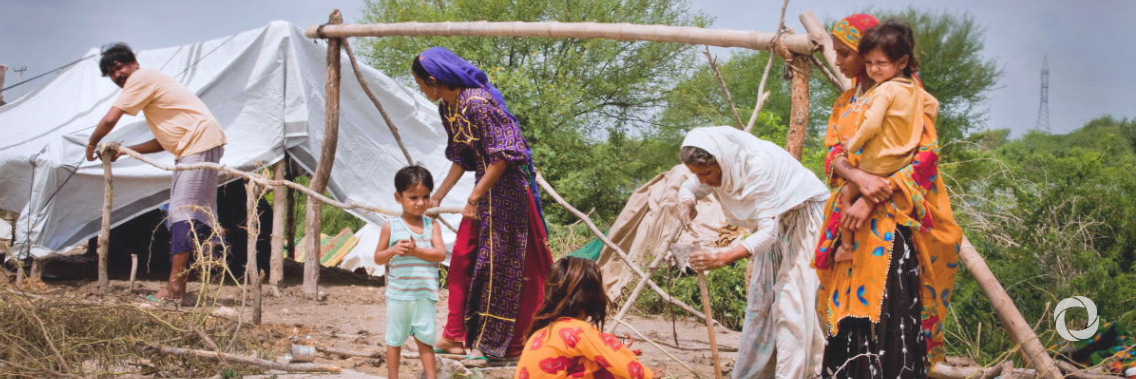Ending conflicts around the world that are driving unprecedented global displacement is not just a moral imperative but critical for international stability, the UN’s refugee chief told a top UN body.
In a briefing to the UN Security Council, UN High Commissioner for Refugees Filippo Grandi said the world expects “decisive, clear and unanimous messages, to end conflicts and pursue avenues for peace.”
“Resolving forced displacement is not just a moral or humanitarian imperative, it concerns areas that are critical for regional and international stability, for the stability of the international economy,” he said in a virtual briefing.
These are “areas that are crucial to achieve justice, in a world that yearns for reconciliation to ensure that no one is truly left behind,” he added.
Grandi was speaking on the day a report by UNHCR, the UN Refugee Agency, found an unprecedented 79.5 million people – the equivalent of one percent of humanity – forcibly displaced by conflicts and persecution at the end of last year, with fewer and fewer of those who flee being able to return home.
The tally includes 45.7 million women, children, and men who had fled within the borders of their countries, while a further 29.6 million were refugees and others forcibly displaced to other countries.
Grandi said the unprecedented increase shows the human impact of decades of crises, wars, social breakdown, violence, and persecution, aggravated by the climate emergency, inequality and exclusion.
The present situation has been further impacted by the COVID-19 pandemic which acts as a “multiplier, interacting with the drivers of displacement,” Grandi said.
“COVID-19 has further exposed their vulnerabilities, it has weakened even more their ability to cope with difficult situations … and stripped away the residual hope they had of a better future.”
Grandi drew attention to three areas of action – the first, how to halt a continuing rise in displacement.
He highlighted the situation in the Sahel, where insecurity exacerbated by climate change is driving increased displacement. Food insecurity in the region that includes Burkina Faso, Chad, Mali, Niger and Mauritania, now affects more than five million people. With some 3,600 schools having been destroyed or closed down by conflict, and COVID having now placed the entire education system in lockdown, he noted that this was “creating fertile ground for forced recruitment of young people by armed groups.”
While humanitarian agencies are trying to play their part, together with development actors, international financial institutions and bilateral agencies, Grandi said “we need a much more strategic application of development aid that tackles truly the root causes, besides security, that takes into account … growing displacement.” Otherwise, he warned, insecurity “may spill over” to states in West Africa, and intensify conflict in the Lake Chad Basin.
In Libya meanwhile, sea departures to Europe are on the rise again following a temporary drop. Grandi urged leaders to seek a unified stance and capitalise on the ongoing peace process.
Secondly, he urged states to maintain and sustain protection. The High Commissioner echoed the UN Secretary-General António Guterres’ call in April for a global ceasefire.
“COVID has stopped many of the things that we are doing, but it doesn’t seem to have stopped war. Despite the call of the Secretary-General’s call for a global ceasefire, conflicts have continued to grow.”
He noted that in a period of two months following the pandemic outbreak, there has been new internal displacement in 19 countries, uprooting 700,000 people globally, including in new and growing crises such as in Mozambique.
He called for redoubled support for countries hosting five million displaced Venezuelans and also for efforts to “depoliticise humanitarian issues,” in relation to refugees from Syria, now in its tenth year of conflict.
He stressed that fully two- thirds of refugees – 26 million – come from just five countries: Afghanistan, Myanmar, South Sudan, Syria, and Venezuela.
Original source: UNHCR
Published on 18 June 2020

